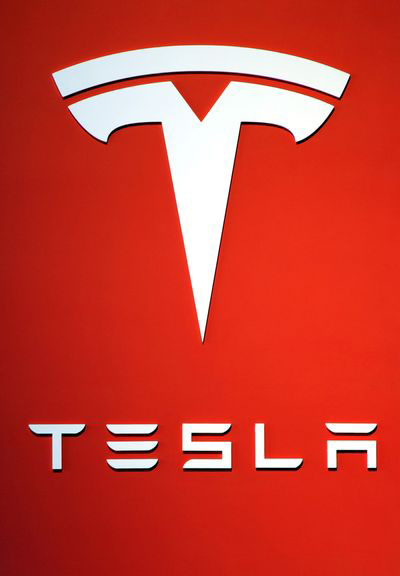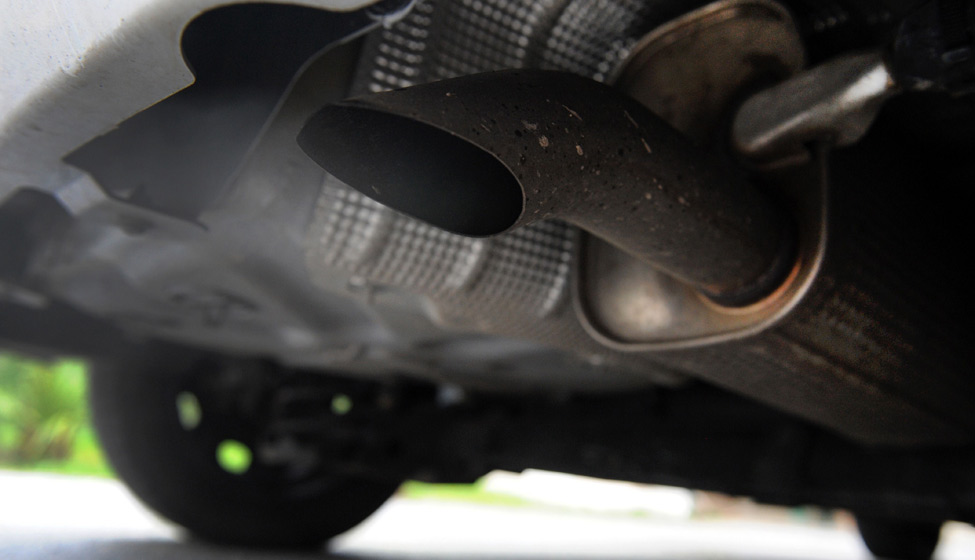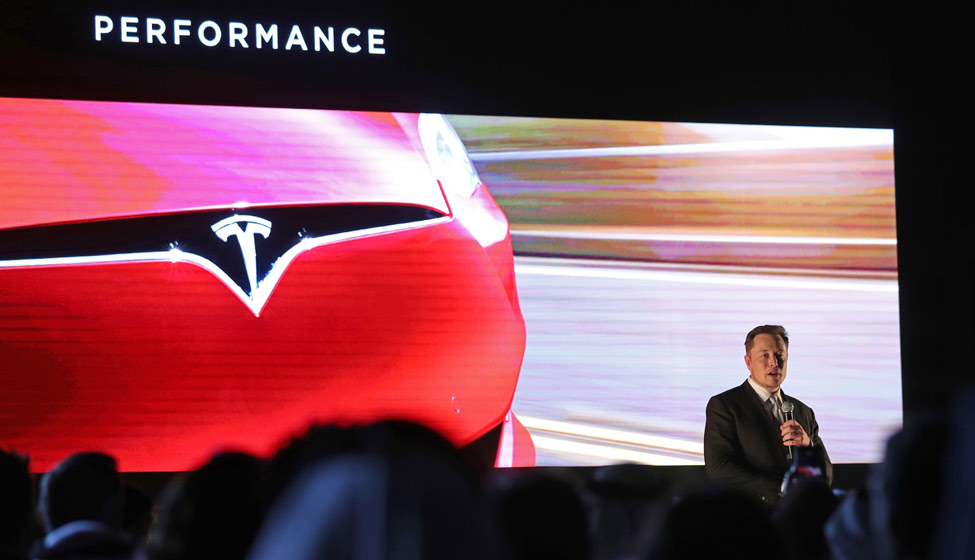Tesla has powered as the most valuable American automaker in terms of market capitalisation. Investors have bet on Tesla Motors Inc despite the Silicon Valley electric-vehicle startup making a loss of $773 mn last year. The Technologically advanced company has had just two profitable quarters in its entire ride as a public company.
Tesla shares soared 3.7 per cent to reach an all-time high of $313.73, overtaking General Motors on April 10 trading. The two companies vied for place one in a daylong race, with Tesla winning the game with a market capitalisation crossing $51 bn, nearly $2 bn more than GM at that time.
A week before, on April 3, Tesla had beaten Ford in value. Hitting out at Tesla haters, who vilified the company for being “overvalued”, Tesla CEO Elon Musk tweeted: “Exactly. Tesla is absurdly overvalued if based on the past, but that's irrelevant. A stock price represents risk-adjusted future cash flows.”
Tesla’s stock has gone up by nearly 42 per cent this year. The 13-year-old company’s ride to the top, overtaking 100-year-old giants like GM and Ford, has raised many eyebrows. A few automakers and dealers have unsuccessfully opposed Tesla's unconventional strategy of direct selling to customers. In 2016, the company sold about 76,000 cars through its own stores. For the same period, General Motors netted a profit of more than $9 billion from sales of 10 mn cars.
While Tesla’s cutting edge technology in fuel-saving, design and novel marketing strategies grab investors' attention, major automakers insist on concessions in federal fuel-efficiency standards.
Lenient targets
Auto industry leaders want to reopen greenhouse gas emission regulations for 2025, saying they are too costly and are incompatible with market reality. They say since fuel prices have fallen, American customers are buying roomy cars and sports utility vehicles that are less fuel-economy.

Alliance of Automobile Manufactures, which represents a dozen US automakers including GM, Ford and Fiat Chrysler, claimed that fuel-economy standards “threaten to depress an industry that can ill afford spiralling regular costs.” An equal number of foreign car manufactures under the banner of Association of Global Automakers, too, claimed relaxation.
The Obama administration and automakers struck a deal in July 2011 to nearly double the average fuel efficiency of new cars and trucks sold in the US. Environmental Protection Agency (EPA) fuel efficiency 2025 standards set an average of 54.5 miles per gallon across a company's array of vehicles sold in the US. In actual world of driving, it would run less than 40 mpg. Manufacturers were on course to achieve the required fuel efficiency standards through 2021, but demanded review for 2022-25. As of now American cars have achieved around 25.1 mpg, up from 20.8 mpg of 2007.
Energy conversationalists estimate that executing EPA guidelines would save oil consumption by 12 bn barrels and cut down carbon dioxide emission by 6 bn tonnes over the lifetime of newly built cars. They do not subscribe to the claims of carmakers that the standard is exorbitant on the industry.
Meeting with auto industry leaders on March 15, President Trump agreed to rollback the Obama-era gas-mileage standards. Trump was pleased to offer concessions as automakers agreed to invest in the US and bring more jobs. However, revisiting the fuel-economy deal is no easy job—EPA and the transportation department require more than a year to complete legal and regulatory reviews. It is likely that the Trump administration would propose the new standards by April next year.
Before Obama left the office, EPA reviewed targets for 2022-2025 models and decided to go ahead with fuel-efficient standards. Manufacturers say that the decision was hurried without considering the burden on automakers.
While EPA estimates that a manufacturer will have to spend $875 for each vehicle, car manufacturers assess the cost to be $1,249 per vehicle. Carmakers say the cost of upgrading bestselling sports utility vehicles (SUVs) will be detrimental to the buyer. However, EPA justifies the decision, saying it would save $1,620 in fuel over the lifetime of a vehicle. Electric and hybrid models already have achieved target emission standards.
Formula future
Vehicle standards set by federal agencies and the state of California make a very complex situation for car manufactures. In addition to those American standards, manufacturers have to comply with higher standards set in Europe, Japan and China, if they need to compete in global market. California has stricter norms passed in 2004—the state got a federal waiver for freely setting its own greenhouse emission standard.
Automakers may get a respite from the Trump administration, but to survive disruptors like Tesla, they need to develop lighter designs with innovative engines that stretch mileage ahead of EPA 2025 standards.
 Energy conversationalists say that executing EPA 2025 guidelines in the US would cut down carbon dioxide emission by 6 bn tonnes over the lifetime of newly built cars. File photo: AFP
Energy conversationalists say that executing EPA 2025 guidelines in the US would cut down carbon dioxide emission by 6 bn tonnes over the lifetime of newly built cars. File photo: AFP





